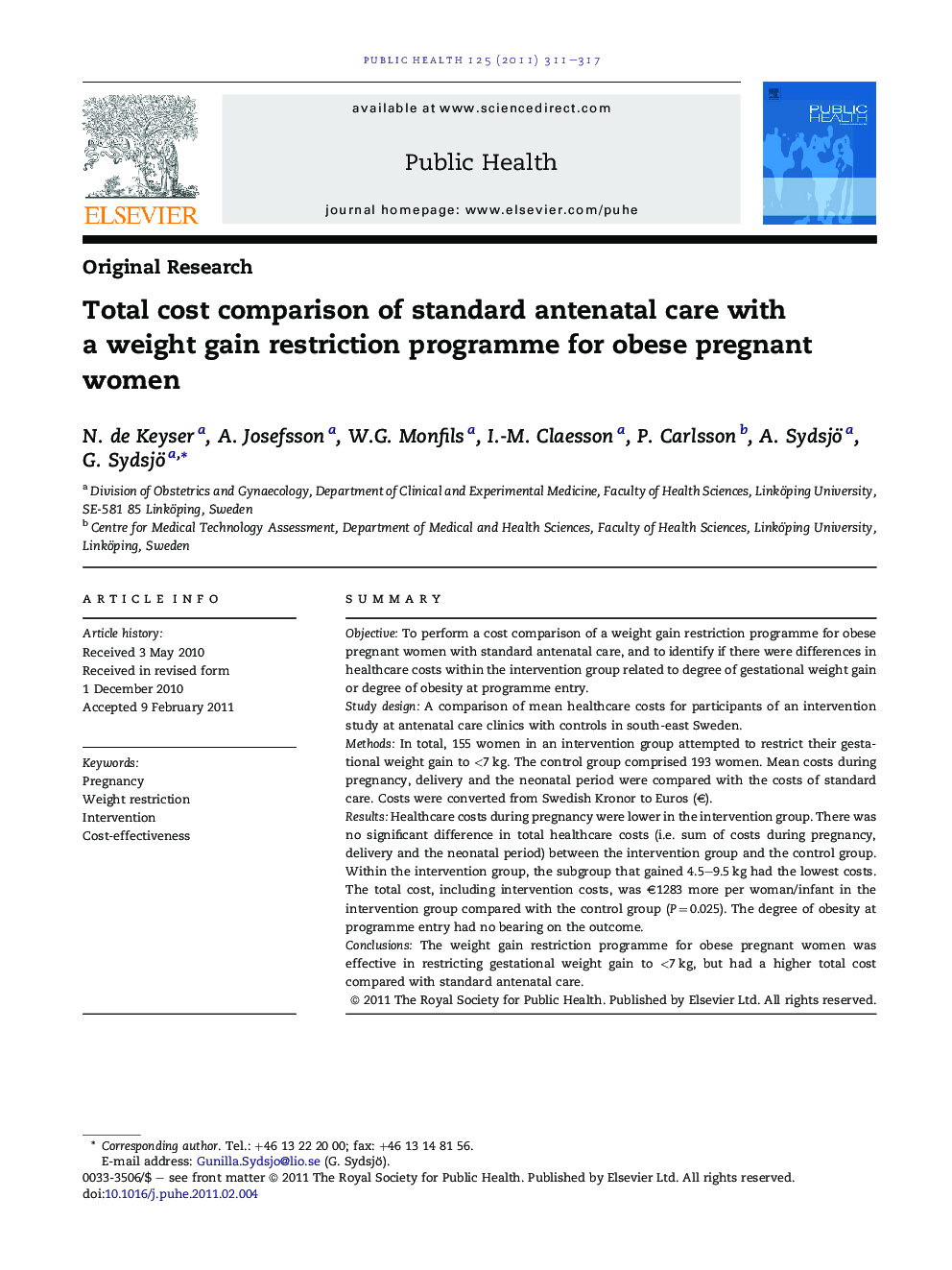| Article ID | Journal | Published Year | Pages | File Type |
|---|---|---|---|---|
| 1088072 | Public Health | 2011 | 7 Pages |
SummaryObjectiveTo perform a cost comparison of a weight gain restriction programme for obese pregnant women with standard antenatal care, and to identify if there were differences in healthcare costs within the intervention group related to degree of gestational weight gain or degree of obesity at programme entry.Study designA comparison of mean healthcare costs for participants of an intervention study at antenatal care clinics with controls in south-east Sweden.MethodsIn total, 155 women in an intervention group attempted to restrict their gestational weight gain to <7 kg. The control group comprised 193 women. Mean costs during pregnancy, delivery and the neonatal period were compared with the costs of standard care. Costs were converted from Swedish Kronor to Euros (€).ResultsHealthcare costs during pregnancy were lower in the intervention group. There was no significant difference in total healthcare costs (i.e. sum of costs during pregnancy, delivery and the neonatal period) between the intervention group and the control group. Within the intervention group, the subgroup that gained 4.5–9.5 kg had the lowest costs. The total cost, including intervention costs, was €1283 more per woman/infant in the intervention group compared with the control group (P = 0.025). The degree of obesity at programme entry had no bearing on the outcome.ConclusionsThe weight gain restriction programme for obese pregnant women was effective in restricting gestational weight gain to <7 kg, but had a higher total cost compared with standard antenatal care.
